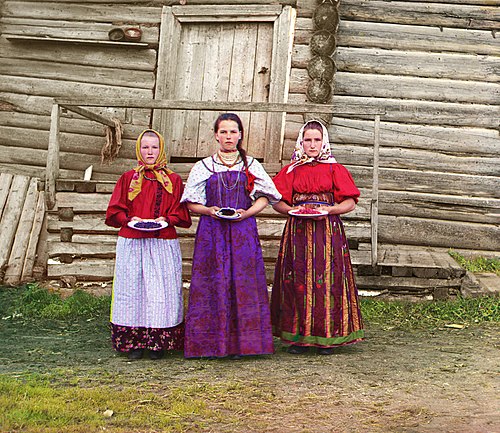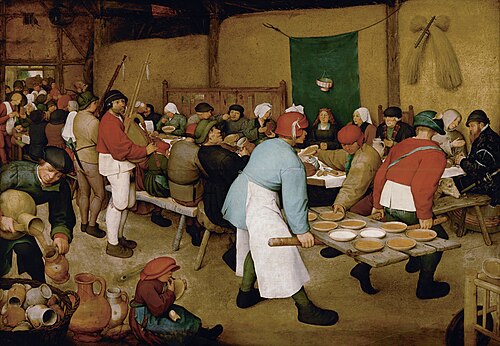Kingnoun
A male monarch; a man who heads a monarchy. If it's an absolute monarchy, then he is the supreme ruler of his nation.
Kingnoun
A powerful or majorly influential person.
Kingnoun
Something that has a preeminent position.
Kingnoun
A component of certain games.
Kingnoun
(chess) The principal chess piece, that players seek to threaten with unavoidable capture to result in a victory by checkmate. It is often the tallest piece, with a symbolic crown with a cross at the top.
Kingnoun
(card games) A playing card with the letter "K" and the image of a king on it, the thirteenth card in a given suit.
Kingnoun
A checker (a piece of checkers/draughts) that reached the farthest row forward, thus becoming crowned (either by turning it upside-down, or by stacking another checker on it) and gaining more freedom of movement.
Kingnoun
A king skin.
Kingnoun
A male dragonfly; a drake.
Kingnoun
A king-sized bed.
Kingverb
To crown king, to make (a person) king.
Kingverb
To rule over as king.
Kingverb
To perform the duties of a king.
Kingverb
To assume or pretend preeminence (over); to lord it over.
Kingverb
To promote a piece of draughts/checkers that has traversed the board to the opposite side, that piece subsequently being permitted to move backwards as well as forwards.
Kingverb
To dress and perform as a drag king.
Kingnoun
A Chinese musical instrument, consisting of resonant stones or metal plates, arranged according to their tones in a frame of wood, and struck with a hammer.
Kingnoun
A chief ruler; a sovereign; one invested with supreme authority over a nation, country, or tribe, usually by hereditary succession; a monarch; a prince.
Kingnoun
One who, or that which, holds a supreme position or rank; a chief among competitors; as, a railroad king; a money king; the king of the lobby; the king of beasts.
Kingnoun
A playing card having the picture of a king{1}; as, the king of diamonds.
Kingnoun
The chief piece in the game of chess.
Kingnoun
A crowned man in the game of draughts.
Kingnoun
The title of two historical books in the Old Testament.
Kingverb
To supply with a king; to make a king of; to raise to royalty.
Kingnoun
a male sovereign; ruler of a kingdom
Kingnoun
a competitor who holds a preeminent position
Kingnoun
a very wealthy or powerful businessman;
Kingnoun
preeminence in a particular category or group or field;
Kingnoun
United States woman tennis player (born in 1943)
Kingnoun
United States guitar player and singer of the blues (born in 1925)
Kingnoun
United States charismatic civil rights leader and Baptist minister who campaigned against the segregation of Blacks (1929-1968)
Kingnoun
a checker that has been moved to the opponent's first row where it is promoted to a piece that is free to move either forward or backward
Kingnoun
one of the four playing cards in a deck bearing the picture of a king
Kingnoun
(chess) the weakest but the most important piece
King
King is the title given to a male monarch in a variety of contexts. The female equivalent is queen, which title is also given to the consort of a king.
Peasantnoun
A member of the lowly social class that toils on the land, constituted by small farmers and tenants, sharecroppers, farmhands and other laborers on the land where they form the main labor force in agriculture and horticulture.
Peasantnoun
A country person.
Peasantnoun
(pejorative) An uncouth, crude or ill-bred person.
Peasantnoun
(strategy games) A worker unit.
Peasantnoun
A countryman; a rustic; especially, one of the lowest class of tillers of the soil in European countries.
Peasantadjective
Rustic, rural.
Peasantnoun
a country person
Peasantnoun
one of a (chiefly European) class of agricultural laborers
Peasantnoun
a crude uncouth ill-bred person lacking culture or refinement
Peasantnoun
a poor smallholder or agricultural labourer of low social status (chiefly in historical use or with reference to subsistence farming in poorer countries)
Peasantnoun
an ignorant, rude, or unsophisticated person
Peasant
A peasant is a pre-industrial agricultural laborer or a farmer with limited land-ownership, especially one living in the Middle Ages under feudalism and paying rent, tax, fees, or services to a landlord. In Europe, three classes of peasants existed: slave, serf, and free tenant.












